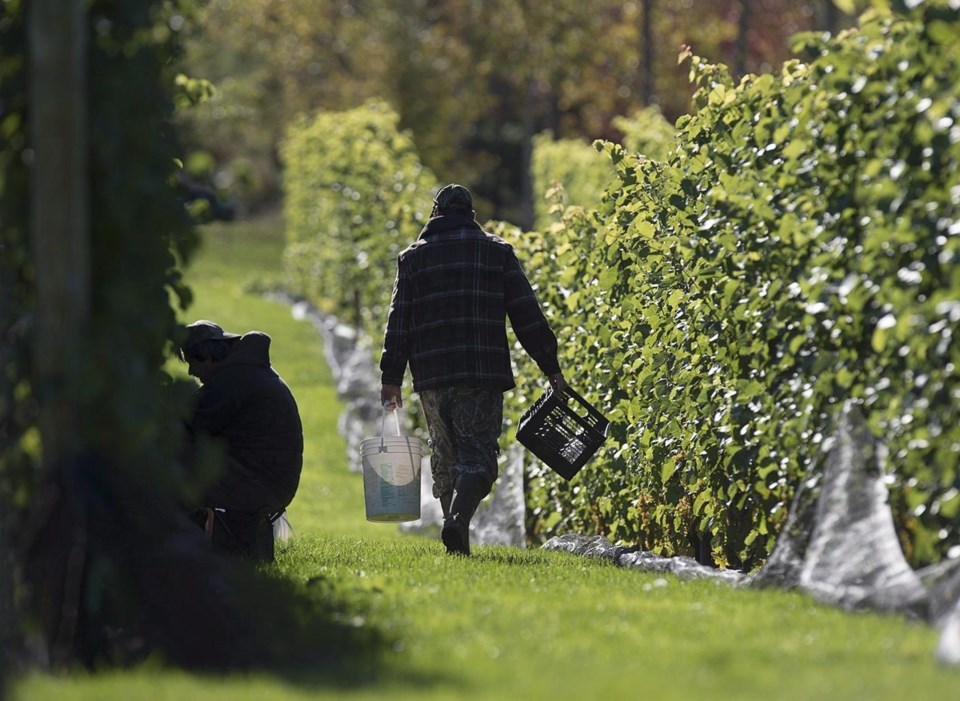HALIFAX — Grape growers say it will take years for Nova Scotia vineyards to recover from the recent cold snap that destroyed more than 95 per cent of some of the most prized varieties of grapes.
Steve Ells, president of the Grape Growers Association of Nova Scotia, said the level of damage to vineyards in the province is the worst he’s seen in his 12 years in the business. He doesn't expect it will be possible to harvest Nova Scotia-grown vinifera grapes — including Chardonnay, Pinot Noir and Riesling — this year.
"It's devastating." Ells said in an interview Friday. "Best-case scenario, it will be a couple years before we have much (vinifera grape) crop at all."
Temperatures dropped to -25 C last weekend, which amid an otherwise unseasonably mild winter led to a “perfect storm” for severe crop damage. Because the winter has been warmer than usual, the vines were less resilient to frigid temperatures, he said.
Ells said he and his peers are still assessing the vines, and they won't likely know the full extent of the damage until the summer.
"We're very concerned about structural damage with trunks cracking from the cold," he said, adding that if a vine's trunk is cracked, not much can be done to save the plant.
"In that case it would be a pull out and replant situation .... We could be seeing a three-year rebuilding situation before we see really any significant amount of vinifera (grapes) back," Ells said.
The cold snap also destroyed between 50 and 60 per cent of buds from hybrid grape varieties, Ells said, which include grape types L'Acadie Blanc, Frontenac and New York Muscat. Hybrids are hardier than viniferas in withstanding the cold, Ells said.
"It's a little easier to envision rebuilding the hybrid plants in a couple of years. There will be a small crop this year, and then a little more crop next year, and then maybe in three years we'll be back to cropping at an acceptable level," he said.
At Ells's 22-hectare vineyard in Sheffield Mills in the Annapolis Valley, 60 per cent of the grapes he grows are vinifera and 40 per cent are hybrids. Association figures show that provincewide about 35 per cent of grapes are vinifera and 65 per cent are hybrid.
The grape growers association has already reached out to the provincial government for support, Ells said.
"For us to come out of this, we'll need some help rebuilding," he said.
This report by The Canadian Press was first published Feb. 10, 2023.
---
This story was produced with the financial assistance of the Meta and Canadian Press News Fellowship.
Lyndsay Armstrong, The Canadian Press



